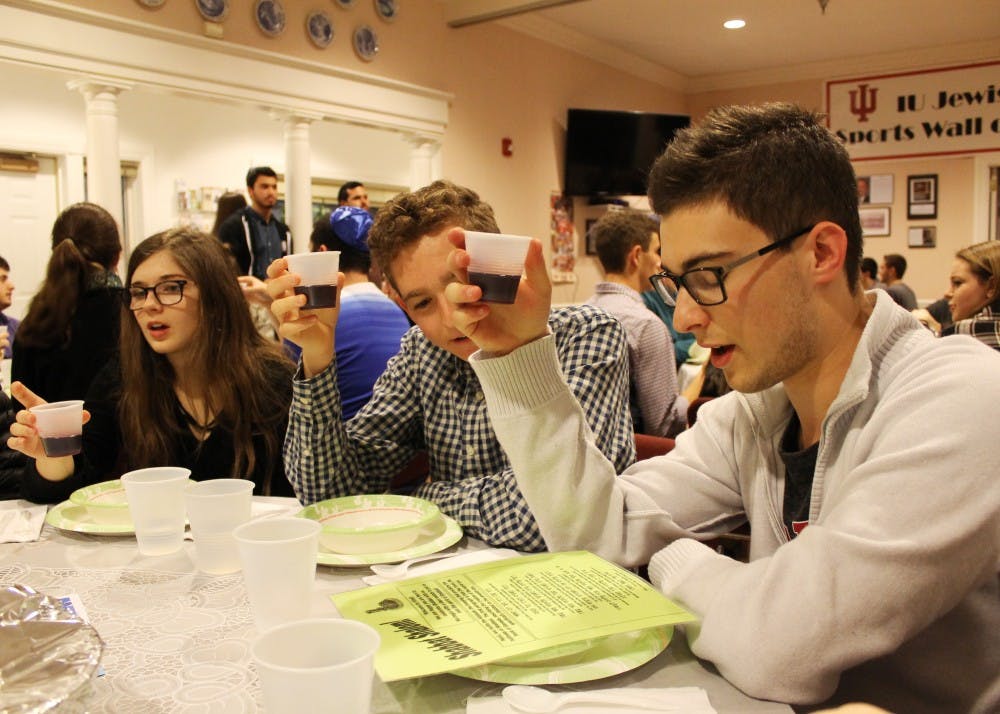IU is home to a number of cultural and religious organizations for the needs of students on campus. Students from all backgrounds can get involved with the six different cultural centers and 50 or more religious organizations on campus.
The organizations work together to give students a place to learn more about different cultures and religions across campus.
“We’re a home away from home,” said Rabbi Sue Silberberg.
One of the centers on campus, the Helene G. Simon Hillel Center, is the Jewish cultural center that provides social, cultural and religious programming for students.
Silberberg, executive director of the Hillel Center, said the center seeks to provide students with the opportunity to create a warm, small community with one another.
The Hillel Center is part of Hillel International, the umbrella organization that oversees Hillels across the country and in locations overseas. The center provides students with a range of clubs to get involved in, from the Hooshir a cappella group to the Business Leadership Initiative.
The center is also connected to a variety of leadership classes on campus, listed under JSTU-X170.
Silberberg said the Hillel Center helps students understand themselves better, so they can understand the world better and in turn help the world.
The Hillel Center works with other cultural and religious organizations on campus through diversity programs. Cultural centers will often visit each other’s centers to learn more about one another.
In the past, the center has shared Shabbat dinners with the La Casa Latino Cultural Center. Silberberg said it is important to the center that they promote diversity and allow students to explore their community.
“IU is a microcosm of a bigger world,” she said.
The Hillel Center brings together Jewish students on campus and teaches Judaism to anyone who wants to learn. Judaism teaches Tzedakah, which means righteousness and justice, and making the world more fair.
Hillel does this by giving their time and money. Tikkum Olam is also taught, which means to make the world better.
“That’s really a cornerstone of what we do,” she said.
The center sees about a thousand students each month. Similar organizations can be found at Purdue University, Butler University and Ball State University.
Another cultural center on campus, La Casa/Latino Cultural Center, is the Latino cultural center on campus, and works to recruit, retain and advocate for Latino students at IU.
The center welcomes students, whether they are Latino or not, and provides services, like tutoring and CAPS counseling, for students who need it.
Administrative Assistant Leticia Gonzalez said students do not always use these services, so La Casa brings them to the center to make students more comfortable. The center tries to introduce these services to students so that they can use them on their own.
La Casa works together with other organizations on campus, most recently celebrating Dia de los Muertos with surrounding centers, including the Canterbury House, First Nations Educational & Cultural Center and the LGBTQ+ Culture Center.
At the beginning of the year, the nearby centers organize a block party for freshmen and encourage students to check out other centers that are not in their vicinity.
“We try to support each other,” she said.
In addition to college students, La Casa also seeks to reach high school students. In late October, La Casa attended the Latino Expo in Indianapolis with other organizations on campus, La Casa Director Lillian Casillas-Origel said via email.
Casillas-Origel also visits high schools, either alone or with the Office of Admissions, to talk about IU and the programs La Casa provides. The steps the center takes to recruit, retain and advocate for students on campus involves getting them to attend IU, encouraging them to remain here and advocating for them during their time here.
Gonzalez said Latino students coming onto campus may feel a sense of culture shock or homesickness. The center encourages students to come to La Casa, as it’s a place to make students feel at home.
Students are surrounded by other students like them, often coming from the same backgrounds.
“They can identify with each other,” she said.
Gonzalez said that we are all made up of different backgrounds, and that we should share what makes us who we are.
“We’re all immigrants of some sort," she said. "I think it’s very important to have that, and to keep those ideas and cultures alive.”



